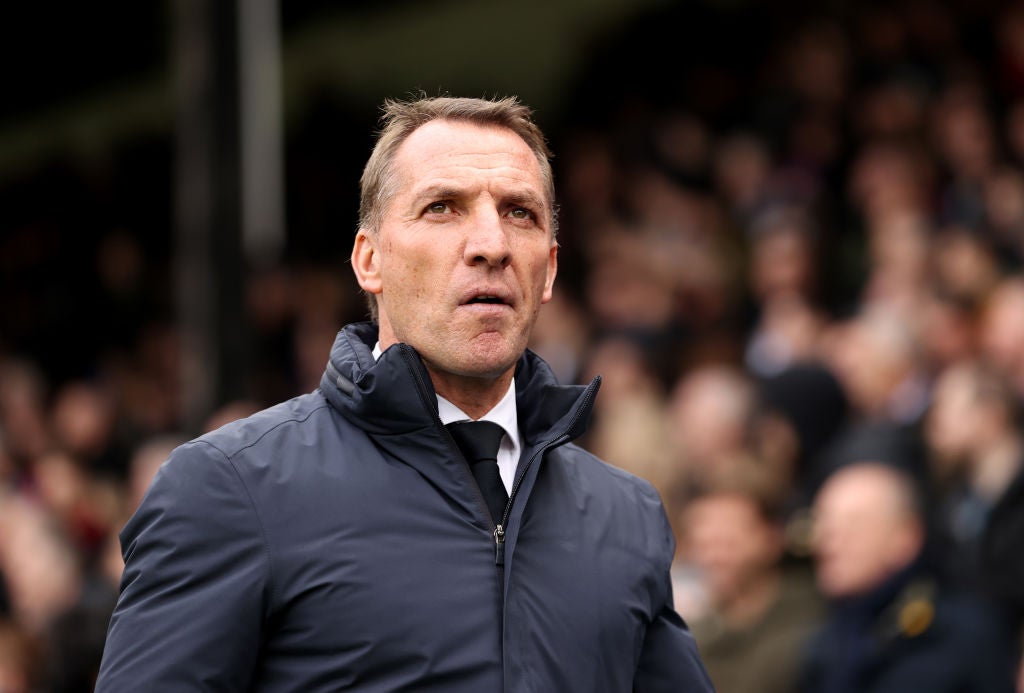The contradiction at the heart of Leicester’s case with the Premier League
The former Premier League champions have become the latest club to be charged after allegedly breaking financial rules
Your support helps us to tell the story
From reproductive rights to climate change to Big Tech, The Independent is on the ground when the story is developing. Whether it's investigating the financials of Elon Musk's pro-Trump PAC or producing our latest documentary, 'The A Word', which shines a light on the American women fighting for reproductive rights, we know how important it is to parse out the facts from the messaging.
At such a critical moment in US history, we need reporters on the ground. Your donation allows us to keep sending journalists to speak to both sides of the story.
The Independent is trusted by Americans across the entire political spectrum. And unlike many other quality news outlets, we choose not to lock Americans out of our reporting and analysis with paywalls. We believe quality journalism should be available to everyone, paid for by those who can afford it.
Your support makes all the difference.Leicester City already held a unique status with both the Premier League and the EFL. Now they may have another. The only club to win each of English football’s top three divisions in the 21st century – champions of League One; Manchester United, Liverpool and Arsenal may never sing that – then announced plans to take legal action against both the Premier League and the EFL.
The feelgood success story has become an emblematic failure in an age of suddenly greater regulation and a dramatic recourse to the lawyers. Attention has shifted from Jamie Vardy’s predilection for vodka and Red Bulls to Nick De Marco KC’s capacity to win court cases. Leicester were the 5000-1 shots who won the title. They presumably think the odds are slightly better when they take on the governing bodies.
There may be a contradiction in their case. Trying to argue they are not subject to the Premier League’s jurisdiction presumably brings them into the EFL’s remit. One way or another, the accusation is that Leicester have failed Financial Fair Play; in one division or another, this season or next, it should bring a points deduction. Which, in turn, either further imperils their chances of promotion or gives them an added obstacle to stay up next season.
But it is also revealing in various other respects. When Everton were the trailblazers in being charged for their breach of Profitability and Sustainability Rules (PSR), there was talk of other clubs suing them; if the accusation was that Everton cheated to get an advantage, that looks ridiculous when they finished 17th last season and the clubs in 16th (Nottingham Forest) and 18th (Leicester) have their own breaches.

Another is that all three suffered on the balance sheet for their underachievement. Budgeting to finish far higher in the Premier League than they did – somehow Everton factored in a sixth-place finish in 2021-22 and trailed in 16th – brings far less prize money and a hole in the accounts ledger. Leicester had more reasons to imagine themselves in the upper echelons of the table but went from five consecutive top-half finishes, two of them in fifth, to 18th in 2022-23.
It is notable, too, that Covid upended the footballing economy. Clubs were permitted to write off Covid losses in their accounts – and Everton’s felt suspiciously large – without them counting towards FFP calculations. But the collapse of transfer fees, especially in other leagues, reduced the market to sell players; it also led to a knock-on effect by restricting the spending power of Premier League rivals who might have otherwise sold well to Europe to finance their own buying.
Leicester had a reputation as fine traders, but they posted a record £92.5m loss for 2021-22, a rare year without a significant sale. In previous summers, players such as Ben Chilwell, Harry Maguire and Riyad Mahrez had brought in windfalls. That had come to feel part of the business plan, yet it can illustrate the precarious position clubs find themselves in: even the well-run are only a few poor decisions away from being plunged into trouble and Leicester made more than a few. Nevertheless, they did well to get £70m from Chelsea for the ever-injured Wesley Fofana in 2022; they then sold James Maddison, Harvey Barnes and Timothy Castagne the following year, after relegation, even though too many of the others who left did so on free transfers.

But a relatively sure touch in the transfer market started to desert them. There were other signings they could not sell for a profit – Danny Ward, Ayoze Perez and Rachid Ghezzal in 2018, Dennis Praet in 2019 – but two windows of recruitment came at a particular cost. The 2021 outlay on Patson Daka, Boubakary Soumare and Jannik Vestergaard, none either a footballing or financial success, was compounded by the January 2023 outlay on Harry Souttar and Victor Kristiansen.
In the process, Leicester contrived to get the worst of both worlds: spending some £30m to compound their FFP issues and yet still getting relegated. It also illustrates that they should have done more to try and cash in on Youri Tielemans, Caglar Soyuncu and Perez while they still could and, while the scale of Leicester’s breach is not yet known, the recurring theme between them, Everton and Forest is that much of it was avoidable: without accumulating so many players, with fewer bad signings, with more sales, the figures may be more presentable.
But it is also a hugely damning indictment of Brendan Rodgers, even if the cost of sacking him may be a further factor in taking Leicester over the FFP limit. Leicester’s former manager had a tendency to voice his complaints about the board’s reluctance to spend in the summer of 2022; now it is apparent that was based on sounder financial logic than his own.

Rodgers had excelled before. Last season, he underachieved with what has proved an unaffordable squad; it would be instructive to know if Leicester’s wage bill was higher than Newcastle’s, as they finished fourth; certainly before bonuses were triggered on Tyneside anyway.
The counter-argument is that Leicester suffered for their success. They were a club without big-six commercial or matchday income but, as they finished fifth twice and won the FA Cup, they had players who deserved to be paid accordingly. They were damned if they did, damned if they didn’t.
Viewed that way, Leicester were punished for their ambition. Certainly it put them in a position where they had less margin for error. But err Leicester did, both in plummeting into the Championship and with transfer-market missteps. Now they find themselves under a transfer embargo, facing a loss of points, their future threatened.
Saying they wanted charges “proportionately determined” risked accusations of hypocrisy, given that threats to take legal action against the Premier League and the Football League strike some as disproportionate. But what can be said is that the landscape has been transformed since Leicester won the Championship in 2014 – while breaching Financial Fair Play.
Join our commenting forum
Join thought-provoking conversations, follow other Independent readers and see their replies
Comments